Another lawyer I worked with took an overdose of heroin about three years ago. He had been barred by the judges from helping with indigent cases in Denton County.
I picked up a rifle from another lawyer-friend about the same time after he called me and said he was afraid he would use it on himself.
A Court of Appeals Judge in Austin killed who had been a successful plaintiff's lawyer killed himself a few years back.
An Hidalgo County judge killed himself.
I know it isn't just lawyers who commit suicide, but we seem to have more than our fair share.
I have tried to look up the statistics, but apparently death rates are not kept by profession well enough to figure it out. The dentist, police officer urban legend cannot be proved one way or another.
We do know the statistics on race and gender: Non-Hispanic Caucasian males are the big losers. A non-Hispanic Caucasian is 2.5 times more likely to kill himself than an Hispanic or African-American male.
Maybe that is because Anglo males tend to be dentists, police officers and trial lawyers.
I do have a sense that litigators are more likely suicides than office practitioners. Real estate lawyers and will writers seem to all die in their 90's--of boredom. I used to cut out and send a copy of the obituaries from the Texas Bar Journal to my friend Leo. I would tabulate the average age of death for trial lawyers, 53, and office practitioners, 93. Leo soon quit trying cases and has been aging very slowly in mind-numbing mediation work. He looks great.
What about the law practice would make life so unbearable that we cannot go on?
Tolstoy's short story One Day in the Life of Ivan Denisovich nails it. Many lawyers live a life worse than useless --this is a terrible burden to bear.
Many of us are trapped into work that, as its day-to-day work, beats down poor people. One of the speakers at the conference this weekend gave a stock justification of the law: it keeps us from taking our disputes to the streets.
I wish I could credit the law for this. My hard thirty-plus years in the law lead me to believe the purpose of the law is to make sure people who have the lion's share of the bounty in this land keep it and people who don't have any, don't get much away from them.
Criminal law hammers the poor. Civil law, to the extent it involves the poor, hammers the poor. There is an area of law euphemistically called civil litigation that is mostly big corporations suing each other and with this the poor only get hurt if they get in the way.
For a very brief period in the law in the United States there was an effort to help the poor. Workers' Compensation laws, products liability laws had a brief period when the poor could get a little redress. Criminal law took a brief run at protecting the rights of the poor. But the system has "righted" itself. The pesky poor people have been beaten back into their hovels.
Lawyers who once could make an honest living without savaging the poor have now had to move on. It is hard to find work these days that does not tear out the lining of the stomach.
Shakespeare's Henry VI, part 2 is often misquoted, either to attack or defend lawyers when Dick the Butcher says, "First thing we do, let's kill all the lawyers."
In Shakespeare's play, Jack Cade replies:
Nay, that I mean to do. Is not this a lamentable
thing, that of the skin of an innocent lamb should
be made parchment? that parchment, being scribbled
o'er, should undo a man? Some say the bee stings:
but I say, 'tis the bee's wax; for I did but seal
once to a thing, and I was never mine own man
since.
In life, he had reasons for his grievances against the law. He was the leader of about 5,000 Kentish peasants who briefly claimed London. They issued a manifesto called the The Complaint of the Poor Commons of Kent. One of the items of complaint:
The law serves of nought else in these days but for to do wrong, for nothing is spread almost but false matters by color of the law for reward, dread and favor and so no remedy is had in the Court of Equity in any way.Jack Cade and his men were offered a pardon, betrayed, and the government stuck his head on a pike on London Bridge. Yep, he was right about the law all along.
If Shakespeare was correct in his description of Cade that he wanted to kill all the lawyers, then Cade was mistaken in believing this would help. Lawyers are seldom murdered by parties in lawsuits. We are fungible commodities. Kill one lawyer and you only get another.
But he was not mistaken in believing the law was the enemy of the poor. And it is becoming so again in these United States.
So Jack Cade won't kill us, but unless we can find a way to put a little service to humanity in our calling, many of us will perform the chore ourselves.
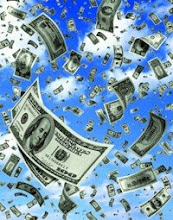
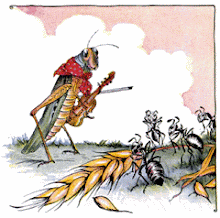













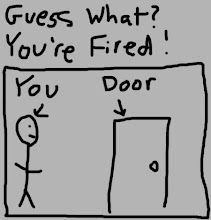
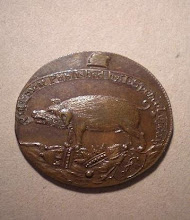









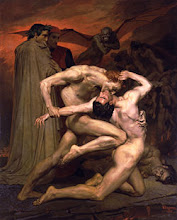_-_Dante_And_Virgil_In_Hell_(1850).jpg)



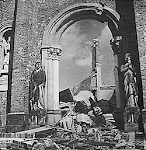











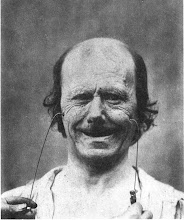
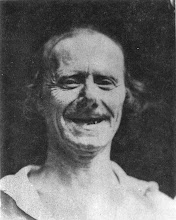


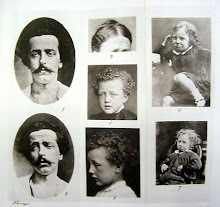





















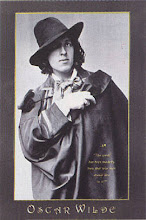
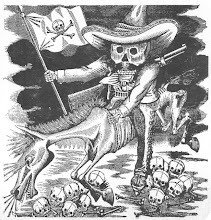












6 comments:
E.A. Robinson's poem is very much on target considering the stereotypical image of the big shot trial lawyer that has it all. I'll confess that the fact that you're talking about lawyers does add an additional dose of shock to your post.
Patricia A.
Thank you for your comment, Patricia A.
Jack Cade did not squander his life. His manifesto helped to shape the coming age including our concepts of justice and liberty.
Participation has a price. The question is at what cost? Jack gave his life. I propose to you a very old concept that the law is a cruel mistress.
The rights of man though inherent are not guaranteed without much sweat, toil and bloodshed. Anyway who wants to live forever?
Keep up the good fight and good night.
I wish I could say the problems in the legal system are new - they are not - with ease my father managed to bribe a judge and lawyer appointed to represent my older five half-sibling and their mother - although all lived in Vermont he managed to get the judge in Beaumont to rule the mother abandoned them and gave custody to my father who had not seen them in 2 years - year 1941. (this is how fathers who abandoned their children avoided child support)
Judges are hopelessly corrupt, as a class - there are many who are trying their best, but find it impossible to do when so many others are working to ignore the law.
Every trial lawyer I know is looking to get out. They know the world of law is a myth - for the most part there is no law - it is a free for all based on the judge's bias.
If you want to see just how pointless the law has become go sit in Judge Rosas child support court for a day.
A point on Judge Hester - it was under Judge Hester's inept and corrupt leadership that the Judges of Cameron and Hidalgo county were labeled some the most corrupt judges in the country. It was his job to remove the judges in cases wherein a lawyer brought forth evidence of the bias or corruption.
Everyone who tried to fight Hester knows he ignored the law at every turn and punished every lawyer who went before him to complain.
To clean up Cameron county we need an Administrative Judge who will do his job instead of covering for the corruption.
But then there is the corrupt court of appeals, and then the SUprme Morons -
so as I like to say - we are screwed.
"Criminal law hammers the poor. Civil law, to the extent it involves the poor, hammers the poor. There is an area of law euphemistically called civil litigation that is mostly big corporations suing each other and with this the poor only get hurt if they get in the way."
I'd point out that the poor, as part of the taxed base, also pay part of the costs of maintaining the court system for the big boys, too. And even if the poor don't pay directly in taxes, they pay in that the courts and dockets left to handle their cases are more overcrowded and underfunded.
--stan
As many of you do, life in these trenches are so unrewarding and trivial that swept under the carpet for more important matters, eventually, you and I will ask why, didn't we see this coming.
On either side, unnecessary loss of life will fall along an individuals path where they never intended to travel.
ML
Post a Comment